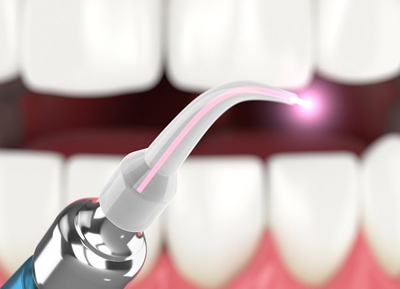

Laser dentistry is a precise and effective method for various dental procedures. Its potential to enhance dental treatments lies in the dentist's ability to control power output and exposure duration on tissues (gums or tooth structure), allowing for highly specific treatments without harming surrounding tissues.
For patients who are anxious about dental procedures and prioritize safety and comfort, seeking dentists who utilize laser techniques can be a good option. Currently, approximately 6 percent of general dentists use lasers for soft tissue applications, with this number expected to grow over time.
As the applications of dental lasers expand, more dentists will adopt this technology to provide patients with precise treatments that can reduce pain and recovery time.
The FDA has approved various hard and soft tissue lasers for use in dental treatments for both adults and children due to their unique absorption characteristics.
Hard Tissue Lasers: These have a wavelength that is highly absorbable by bone and tooth structure, making them effective for cutting through tooth structure. They include Erbium YAG and Erbium chromium YSGG lasers. They are used for tasks like tooth preparation for bonding, minor tooth structure removal, and repairing worn-down dental fillings.
Soft Tissue Lasers: Soft tissue lasers have a wavelength absorbable by water and hemoglobin, making them effective for soft tissue management. Examples include Neodymium YAG (Nd:YAG) and diode lasers, which can be used in periodontal treatments to kill bacteria and promote tissue regeneration. They also minimize postoperative pain.
Apart from cutting and shaping hard and soft tissues, some lasers are used for non-invasive imaging of tooth and cell interiors using Optical Coherence Tomography. Others provide energy and specific proteins to facilitate cell-to-cell communication and heal damaged cells.
Laser dentistry is an innovative and precise technology for various dental applications. Its growing popularity may lead to quicker, more effective, and more comfortable dental procedures. Dental lasers have the potential to replace traditional tools like the dental drill, reducing anxiety for many patients.
The future of dental lasers looks promising, as technology continues to improve and become more cost-effective. Dentists worldwide are likely to incorporate laser dentistry into their practices, enhancing the overall dental experience for patients.